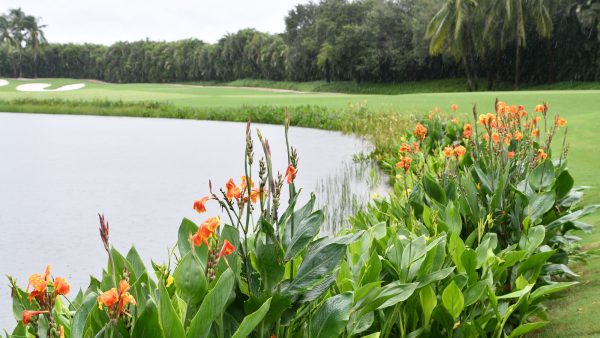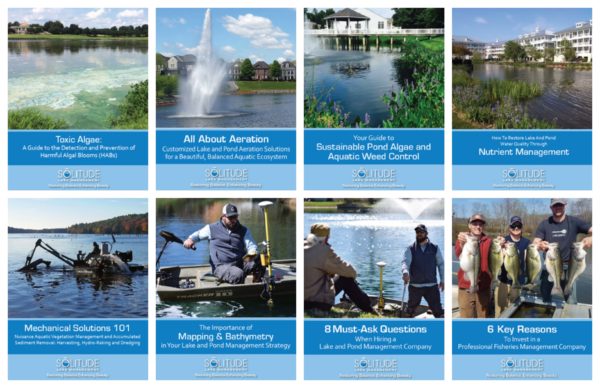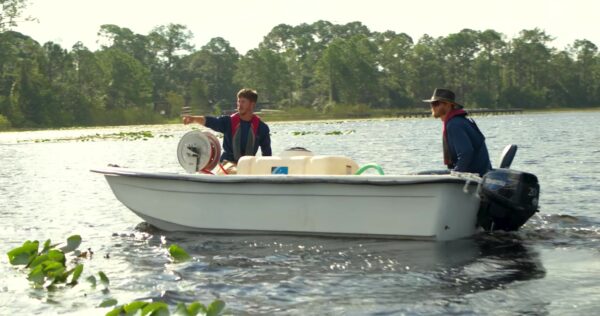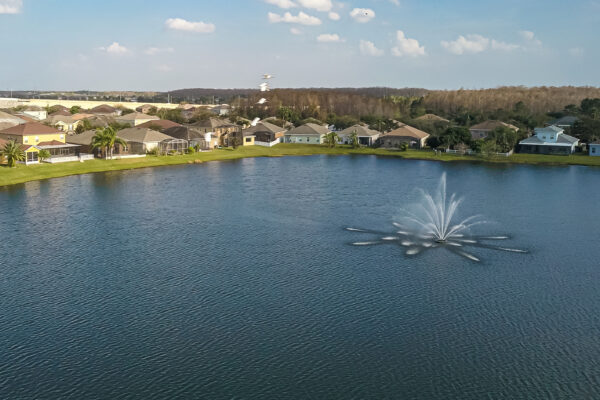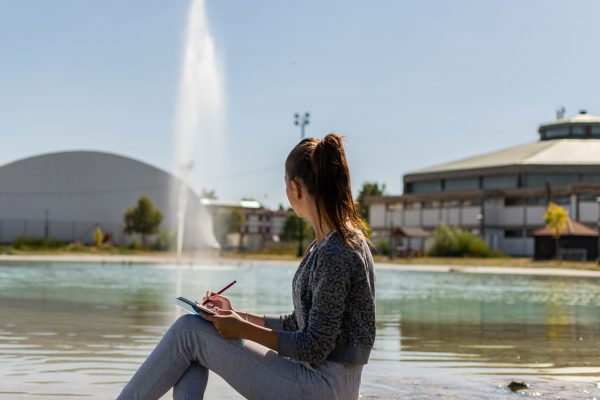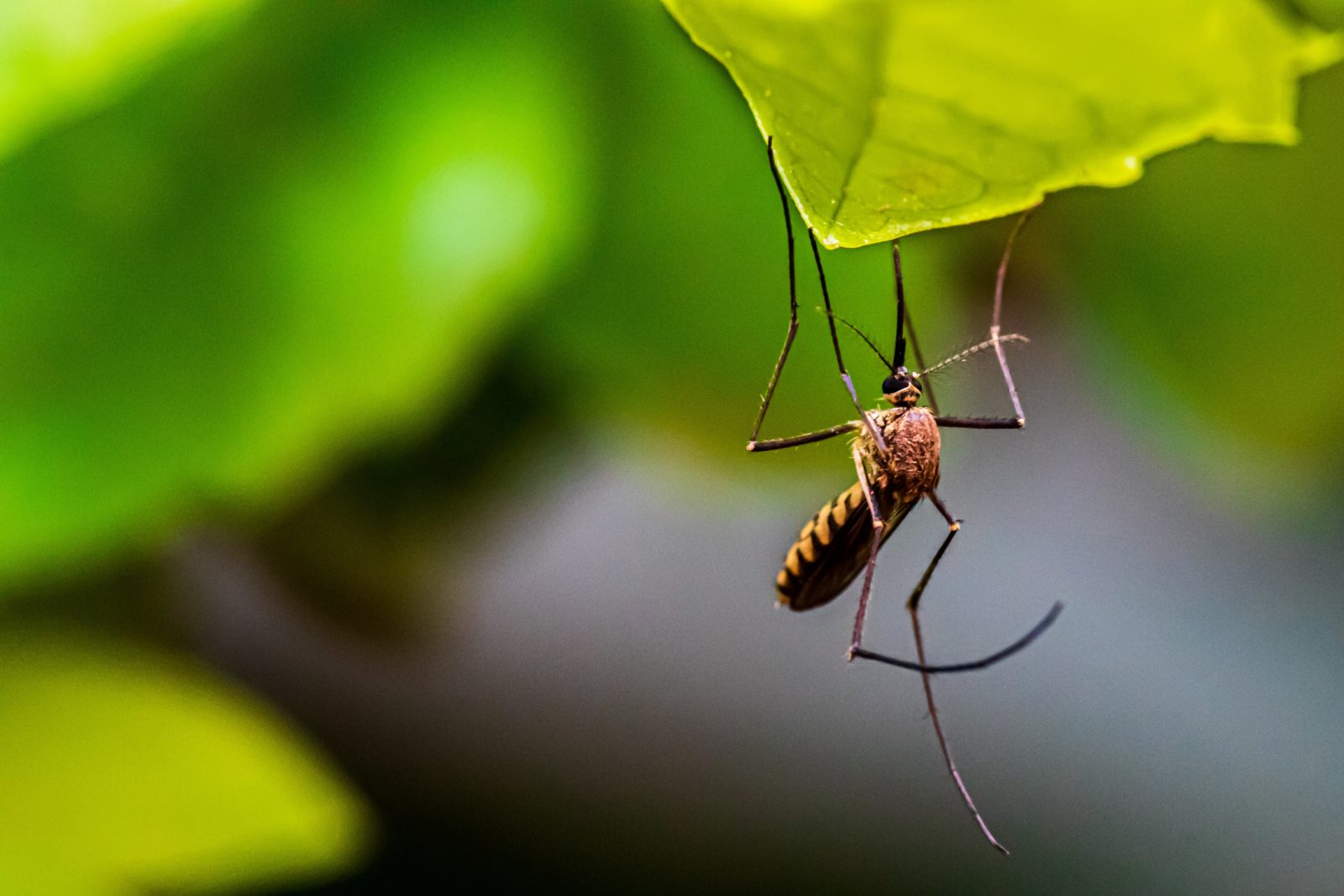
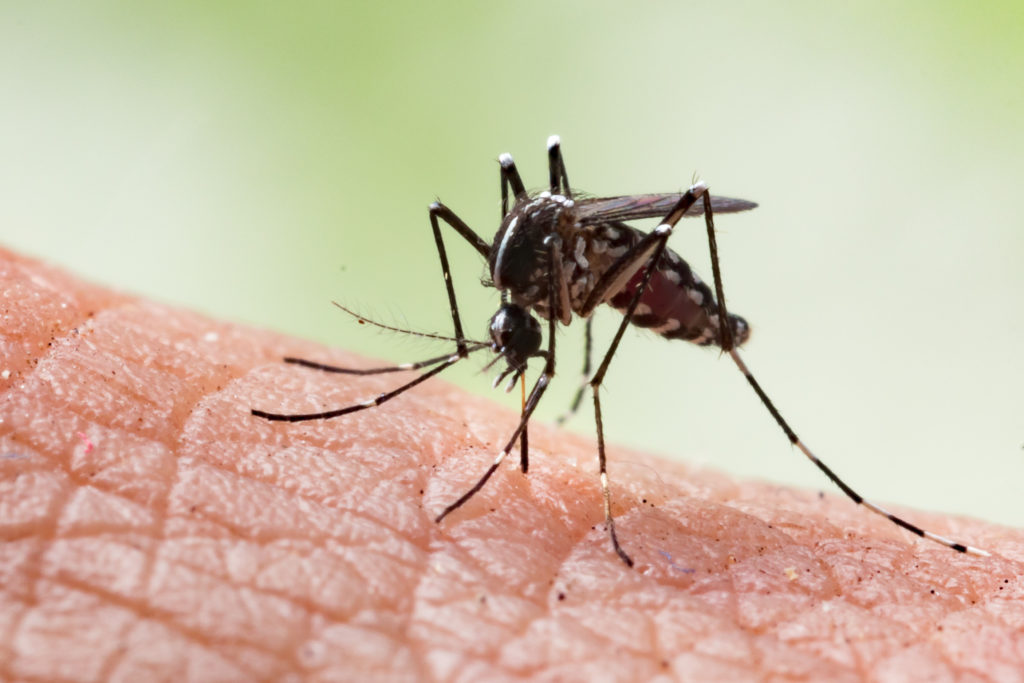
Best Practices For Mosquito Management In and Around Your Waterbody
What comes to mind when you think of warm weather? Maybe a nice, relaxing day on the beach or lake? Or maybe it’s the reminder that pesky bugs will be making their comeback for the summer. Out of all the little annoyances, mosquitoes are often considered the worst. In addition to being annoying, mosquitoes pose a serious threat to public health, as they transmit dangerous diseases like Zika and West Nile Virus. Luckily, there are several management strategies to help prevent mosquitoes from bugging you this summer. So, put down the citronella candle and take notes on how you can protect yourself from these pesky intruders.
Mosquitoes breed in standing or stagnant water and will lay about 300 eggs in their six- to eight-week lifespan. This is an overwhelming number of mosquitoes! One of the easiest ways to help manage mosquitoes is by dumping any buckets or small containers that have standing water in them, picking up litter, and clearing gutters. These are all areas where little pockets of water will sit and become a breeding ground for mosquitoes.
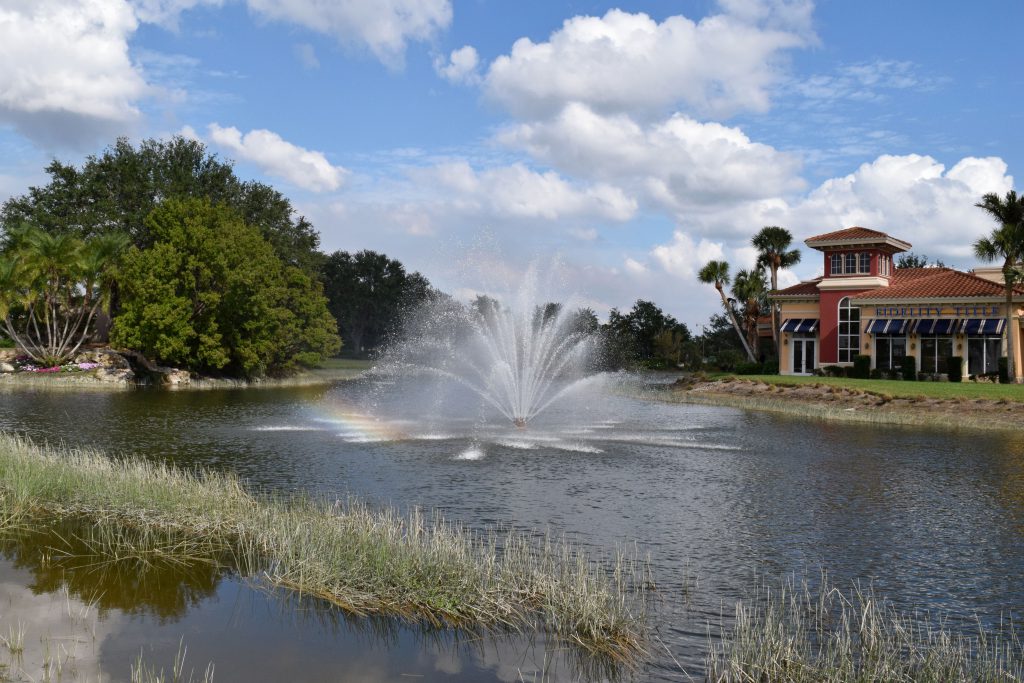
Improve Water Circulation with Fountains and Aeration Systems
In addition to making sure there is no standing water around your property, there are a number of lake and stormwater pond management strategies to help reduce mosquitoes in and around your waterbody:
In aquatic environments such as lakes, ponds, and stormwater basins, one of the keys to prevention is through aeration. Mosquitoes prefer warm, stagnant water; therefore, the more you get the water moving, the less appealing the habitat will be for breeding. Floating fountains provide excellent circulation while enhancing the aesthetics and ecological health of any lake or pond. Submersed aeration systems are another great way to circulate water while also enhancing oxygen levels at the bottom of your waterbody, which helps to facilitate the natural decomposition of organic material and improves water quality.
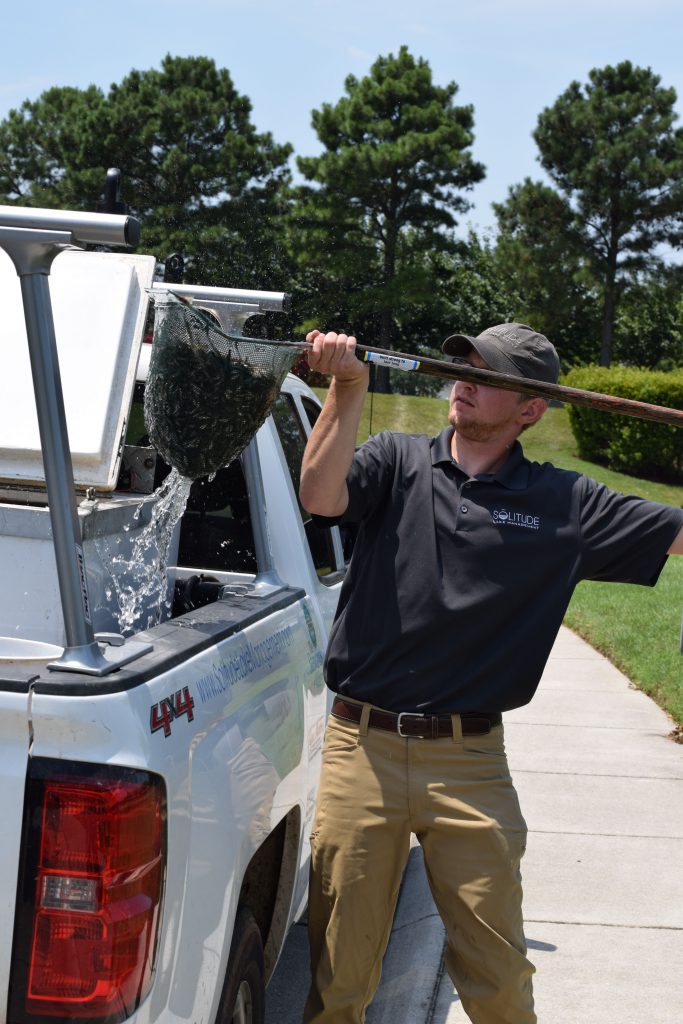
Stock Fish for Mosquito Larvae Control
Another management method for lakes and ponds is fish stocking. Fathead minnows, Mosquitofish and Bluegill all eat mosquito larvae in order to support their own growth and development. Introducing a healthy population of these fish can help reduce larvae populations in your waterbody.
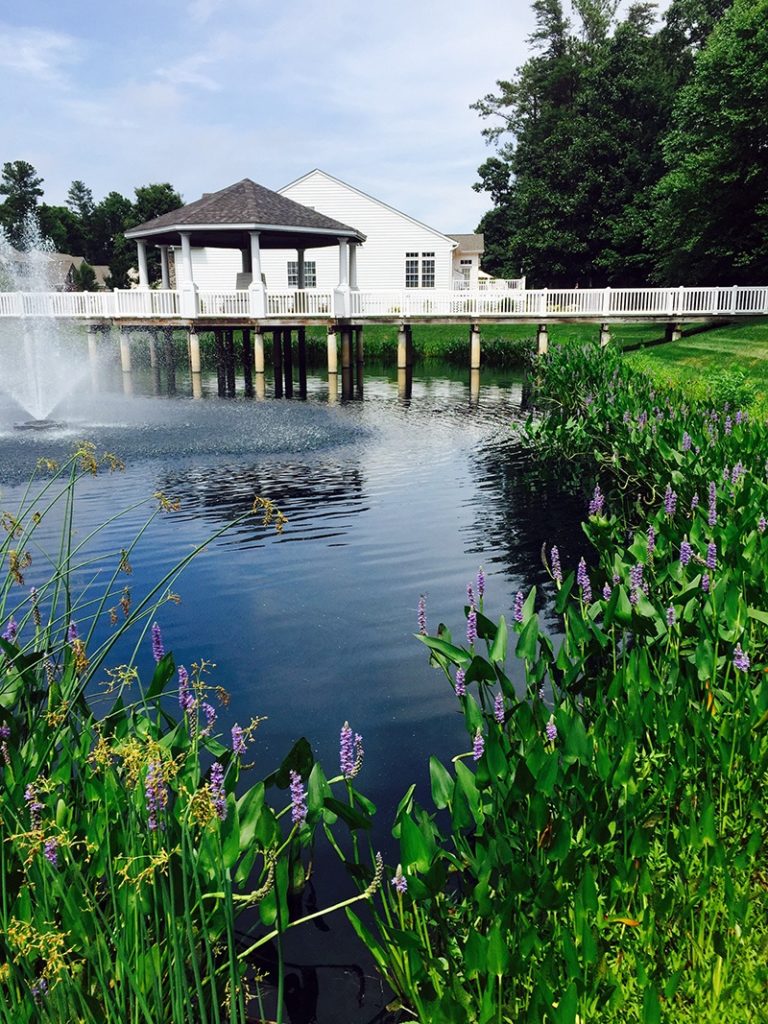
Maintain a Beneficial Vegetative Buffer to Help Limit Mosquitoes
In addition to stocking fish, maintaining a buffer of beneficial vegetation such as swamp milkweed, pickerelweed, and arrowhead will help provide habitat for mosquito predators like dragonflies. Not only will the buffer help limit mosquitoes, but it will also prevent an overload of nutrients from entering your waterbody.
This time of year can also bring another annoying species that residents of the south are especially familiar with – midges or “No-See-Ums.” Midges are mosquito-like insects, but differ from mosquitoes in that they don’t bite, suck blood or carry diseases; however, they can still be quite the nuisance. This insect is drawn to waterbodies with low oxygen and a high level of pond nutrients; making it their perfect breeding habitat. Good news! Midges can be managed using all of the strategies mentioned above.
Now that the days are getting longer and warmer, take some time to prepare your waterbody and community for mosquitoes. Implementing these management strategies will make your outdoor activities more enjoyable and help keep you and your family safe from deadly diseases. While installation of a pond aeration system and stocking fish will help reduce the presence of mosquitoes, introducing an Integrated Mosquito Management plan into your annual maintenance will help make your mosquito management efforts a success. Reach out to your lake manager to learn more about mosquito prevention in your community.
Who We Are
SOLitude Lake Management is a nationwide environmental firm committed to providing sustainable solutions that improve water quality, enhance beauty, preserve natural resources and reduce our environmental footprint. SOLitude’s team of aquatic resource management professionals specializes in the development and execution of customized lake, pond, wetland and fisheries management programs that include water quality testing and restoration, nutrient remediation, algae and aquatic weed control, installation and maintenance of fountains and aeration systems, bathymetry, mechanical harvesting and hydro-raking, lake vegetation studies, biological assessments, habitat evaluations, and invasive species management. Services and educational resources are available to clients nationwide, including homeowners associations, multi-family and apartment communities, golf courses, commercial developments, ranches, private landowners, reservoirs, recreational and public lakes, municipalities, drinking water authorities, parks, and state and federal agencies. SOLitude Lake Management is a proud member of the Rentokil Steritech family of companies in North America.

